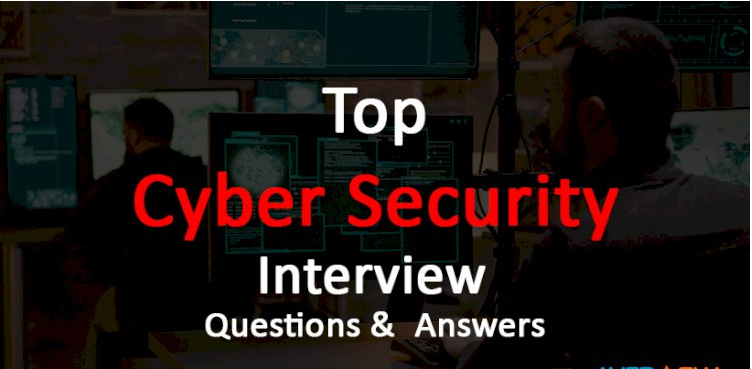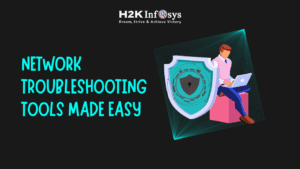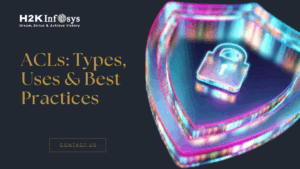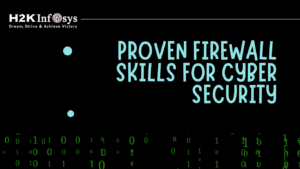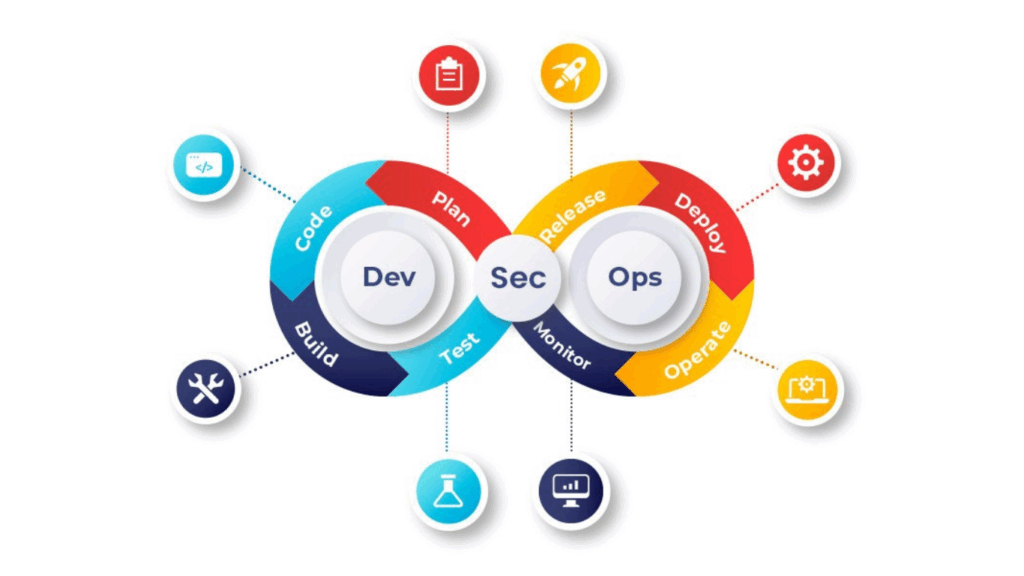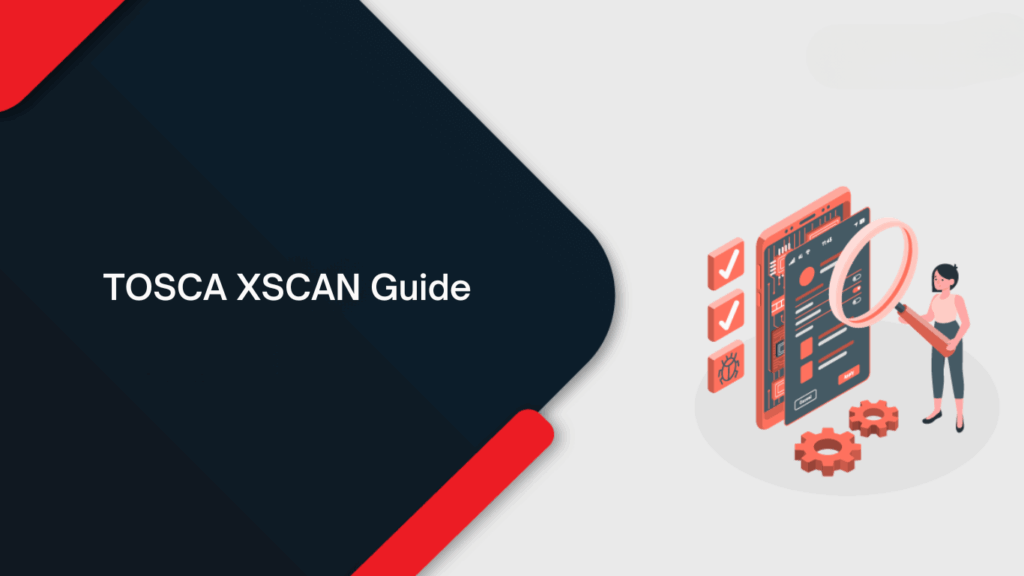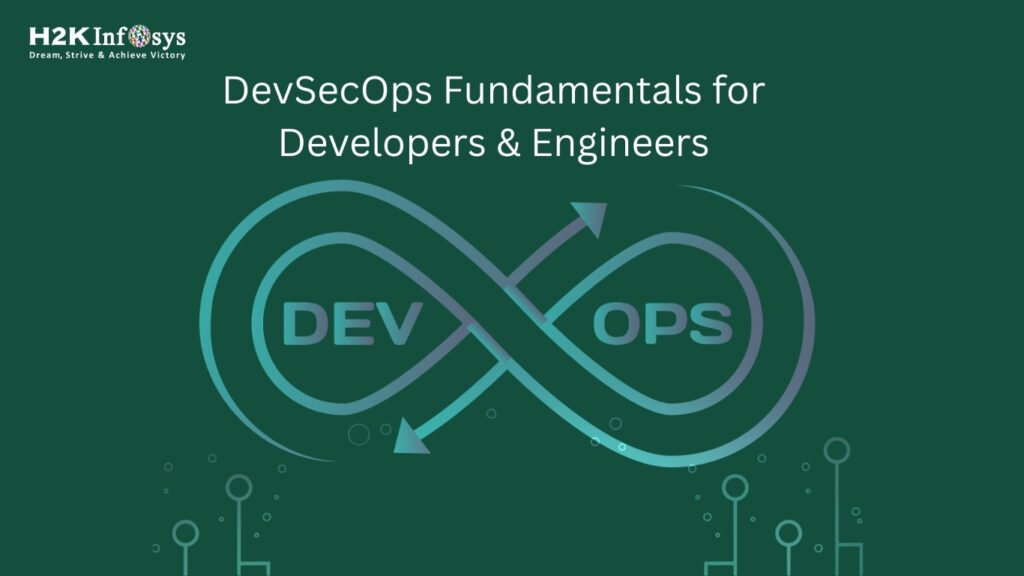Organizations increasingly rely on digital infrastructure, the demand for cybersecurity professionals continues to grow. Preparing for a Cyber security course and job placement interview requires understanding the essential concepts and staying up-to-date with the latest trends and threats. This article will cover some of the Top Cyber Security Interview Questions and answers to help you prepare for your next interview.
Top Cyber Security Interview Questions and Answers
What is Cybersecurity?
Answer:
Cybersecurity refers to the practice of protecting systems, networks, and data from digital attacks. It encompasses a range of technologies, processes, and practices designed to safeguard information from unauthorized access, theft, damage, or disruption. Cybersecurity aims to ensure the confidentiality, integrity, and availability of information.
This is one of the most fundamental Top Cyber Security Interview Questions.
What are the different types of cyber threats?
Answer:
Cyber threats come in various forms, including:
- Malware: Malicious software designed to harm or exploit systems. Examples include viruses, worms, ransomware, and spyware.
- Phishing: A social engineering attack where attackers impersonate legitimate entities to trick users into revealing sensitive information.
- Denial-of-Service (DoS) Attack: An attack that overwhelms a system with traffic, rendering it unavailable to users.
- Man-in-the-Middle (MitM) Attack: An attack where the attacker intercepts and alters communication between two parties.
- SQL Injection: An attack that involves inserting malicious SQL code into a database query, allowing attackers to manipulate the database.
- Zero-Day Exploit: An attack that targets a vulnerability not yet known to the software vendor.
Understanding these threats is crucial to answering Top Cyber Security Interview Questions effectively.
What is the CIA Triad?
Answer:
The CIA Triad is a fundamental model in cybersecurity that represents three core principles:
- Confidentiality: Ensuring that sensitive information is accessible only to authorized individuals.
- Integrity: Maintaining the accuracy and completeness of data, ensuring it is not tampered with.
- Availability: Ensuring that systems and data are accessible to authorized users when needed.
Many Top Cyber Security Interview Questions are based on the CIA Triad.
What is a firewall, and how does it work?
Answer:
A firewall is a security device that monitors and controls incoming and outgoing network traffic based on predetermined security rules. It acts as a barrier between a trusted internal network and untrusted external networks. Firewalls can be hardware-based, software-based, or a combination of both. They work by filtering traffic based on criteria such as IP addresses, port numbers, and protocols, allowing or blocking traffic according to security policies.
Knowledge of firewalls is common in Top Cyber Security Interview Questions.

What is encryption, and why is it important?
Answer:
Encryption is the process of converting plaintext into ciphertext using an algorithm and an encryption key. The ciphertext is unreadable without the corresponding decryption key. Encryption is important because it protects sensitive information from unauthorized access. Even if data is intercepted, it remains secure as long as the decryption key is not compromised.
Encryption techniques are frequently asked in Top Cyber Security Interview Questions.
What is a VPN, and how does it work?
Answer:
A Virtual Private Network (VPN) is a technology that creates a secure, encrypted connection over a less secure network, such as the internet. VPNs use tunneling protocols to encrypt data transmitted between the user’s device and the VPN server, protecting it from eavesdropping and unauthorized access. VPNs are commonly used to provide remote access to corporate networks and to protect user privacy.
VPNs are one of the practical topics in Top Cyber Security Interview Questions.
What tools do you use for vulnerability scanning?
Answer:
Popular tools include:
- Nmap (network scanning)
- Nessus
- OpenVAS
- Qualys
- Burp Suite (for web apps)
These tools are commonly mentioned in Top Cyber Security Interview Questions.
What is a DDoS attack, and how can it be mitigated?
Answer:
A Distributed Denial-of-Service (DDoS) attack involves multiple compromised systems flooding a target system with excessive traffic, overwhelming its resources and rendering it unavailable to legitimate users. DDoS attacks can be mitigated through various methods, including:
- Traffic filtering: Blocking malicious traffic at the network edge.
- Rate limiting: Limiting the number of requests a server can handle in a given period.
- Content delivery networks (CDNs): Distributing traffic across multiple servers to absorb the attack.
- Web Application Firewalls (WAFs): Filtering and monitoring HTTP traffic to protect against DDoS attacks.
DDoS scenarios are regularly included in Top Cyber Security Interview Questions.
How do you handle a ransomware attack?
Answer:
- Disconnect affected systems
- Notify internal teams and law enforcement
- Do not pay ransom unless as a last resort
- Restore from clean backups
- Perform root cause analysis
- Harden systems against future threats
This response process is crucial to address in Top Cyber Security Interview Questions.
How do you secure a web application?
Answer:
Web app security practices include:
- Input validation and sanitization
- Using HTTPS and SSL/TLS
- Applying authentication and session management
- Implementing a WAF (Web Application Firewall)
- Following OWASP Top 10 guidelines
Application-level security is a common area in Top Cyber Security Interview Questions.
What are the key layers of the OSI model used in cybersecurity?
Answer:
The OSI model has 7 layers:
- Physical
- Data Link
- Network
- Transport
- Session
- Presentation
- Application
Security professionals focus especially on Layers 3 (Network), 4 (Transport), and 7 (Application).
OSI-related questions often appear in Top Cyber Security Interview Questions.
What is a honeypot, and how is it used in cybersecurity?
Answer:
A honeypot is a decoy system or network designed to attract and monitor cyber attackers. It serves as a trap for malicious actors, allowing security professionals to study their techniques and tactics. Honeypots can be used to detect unauthorized access, gather intelligence on potential threats, and analyze attack patterns. They are often deployed as part of a larger security strategy to improve an organization’s overall defense posture.
Honeypots are frequently featured in Top Cyber Security Interview Questions.
What is the principle of least privilege?
Answer:
The principle of least privilege is a security concept that states that users and systems should be granted the minimum level of access necessary to perform their tasks. This principle helps reduce the risk of unauthorized access and minimizes the potential damage from security breaches. By limiting access to only the resources needed, organizations can better protect sensitive information and systems.
It is an essential concept in Top Cyber Security Interview Questions.
What is an intrusion detection system (IDS)?
Answer:
An intrusion detection system (IDS) is a security tool that monitors network traffic and system activity for signs of malicious activity or policy violations. IDS can be classified into two types:
- Network-based IDS (NIDS): Monitors network traffic for suspicious patterns.
- Host-based IDS (HIDS): Monitors system activity on individual hosts, such as file integrity and system logs.
IDS-related inquiries are part of most Top Cyber Security Interview Questions lists.
What is a security incident, and how should it be handled?
Answer:
A security incident is any event that threatens the confidentiality, integrity, or availability of an organization’s information or systems. Security incidents can include data breaches, malware infections, unauthorized access, and more. Handling a security incident involves several steps:
- Detection: Identifying the occurrence of the incident.
- Containment: Isolating the affected systems to prevent further damage.
- Eradication: Removing the root cause of the incident, such as malware or vulnerabilities.
- Recovery: Restoring systems and data to normal operations.
- Post-incident analysis: Reviewing the incident to identify lessons learned and improve security measures.
Security incident management often appears in Top Cyber Security Interview Questions.
What is XDR (Extended Detection and Response)?
Answer:
XDR is a unified security solution that collects and automatically correlates data across multiple security layers—such as endpoints, networks, servers, and email—for faster threat detection and response.
Expect XDR to appear in advanced Top Cyber Security Interview Questions.
What is a security audit?
Answer:
A security audit is a systematic evaluation of an organization’s information systems, processes, and controls to assess their effectiveness in protecting against security threats. Security audits can be internal (conducted by the organization’s staff) or external (conducted by independent third parties). Audits typically involve reviewing security policies, analyzing network and system configurations, and testing security controls. The goal of a security audit is to identify vulnerabilities and provide recommendations for improving security.
This is commonly addressed in Top Cyber Security Interview Questions.
How does AI/ML enhance cybersecurity?
Answer:
AI/ML helps by:
- Detecting anomalies and threats in real-time
- Automating incident response
- Identifying patterns in large datasets
- Enhancing user behavior analytics (UEBA)
AI/ML is an emerging trend in Top Cyber Security Interview Questions.
What is two-factor authentication (2FA)?
Answer:
Two-factor authentication (2FA) is a security mechanism that requires users to provide two forms of verification before accessing a system or application. The two factors typically include:
- Something you know: A password or PIN.
- Something you have: A physical token, mobile device, or smart card.
This topic is often included in Top Cyber Security Interview Questions.
What is a security policy?
Answer:
A security policy is a formal document that outlines an organization’s approach to managing and protecting its information assets. It defines the rules, procedures, and guidelines for ensuring data security and compliance with legal and regulatory requirements. Security policies typically cover areas such as access control, data protection, incident response, and acceptable use of resources. They serve as a foundation for an organization’s security practices and help establish a culture of security awareness.
Security policies are central to Top Cyber Security Interview Questions.
What is an SSL/TLS certificate, and why is it important?
Answer:
An SSL/TLS certificate is a digital certificate that authenticates the identity of a website and enables an encrypted connection between the website and the user’s browser. SSL (Secure Sockets Layer) and TLS (Transport Layer Security) are cryptographic protocols that provide secure communication over the internet. SSL/TLS certificates are important because they protect sensitive information, such as credit card numbers and login credentials, from being intercepted by attackers. They also help establish trust with users by verifying the legitimacy of the website.
What is a botnet?
Answer:
A botnet is a network of compromised computers, known as bots or zombies, controlled by an attacker. Botnets are often used to carry out malicious activities, such as distributed denial-of-service (DDoS) attacks, spamming, and data theft. Botnets can consist of thousands or even millions of compromised devices, making them a powerful tool for cybercriminals. They are typically controlled remotely through command-and-control (C&C) servers, allowing attackers to orchestrate large-scale attacks.
Botnets are a frequent topic in Top Cyber Security Interview Questions.
Conclusion
Preparing for a cybersecurity interview requires a solid understanding of fundamental concepts, as well as staying informed about the latest threats and technologies. By reviewing these Top Cyber Security Interview Questions, you can build confidence and demonstrate your knowledge to potential employers. Remember to continue learning and staying up-to-date with industry developments, as Cyber security training and placement is a constantly evolving field. Good luck with your interview preparation!
